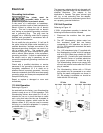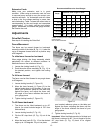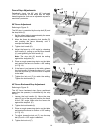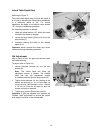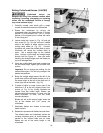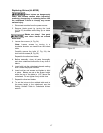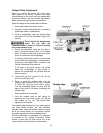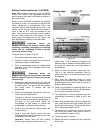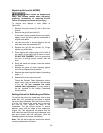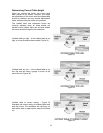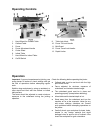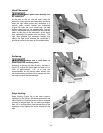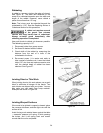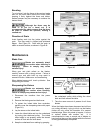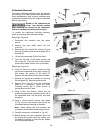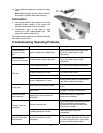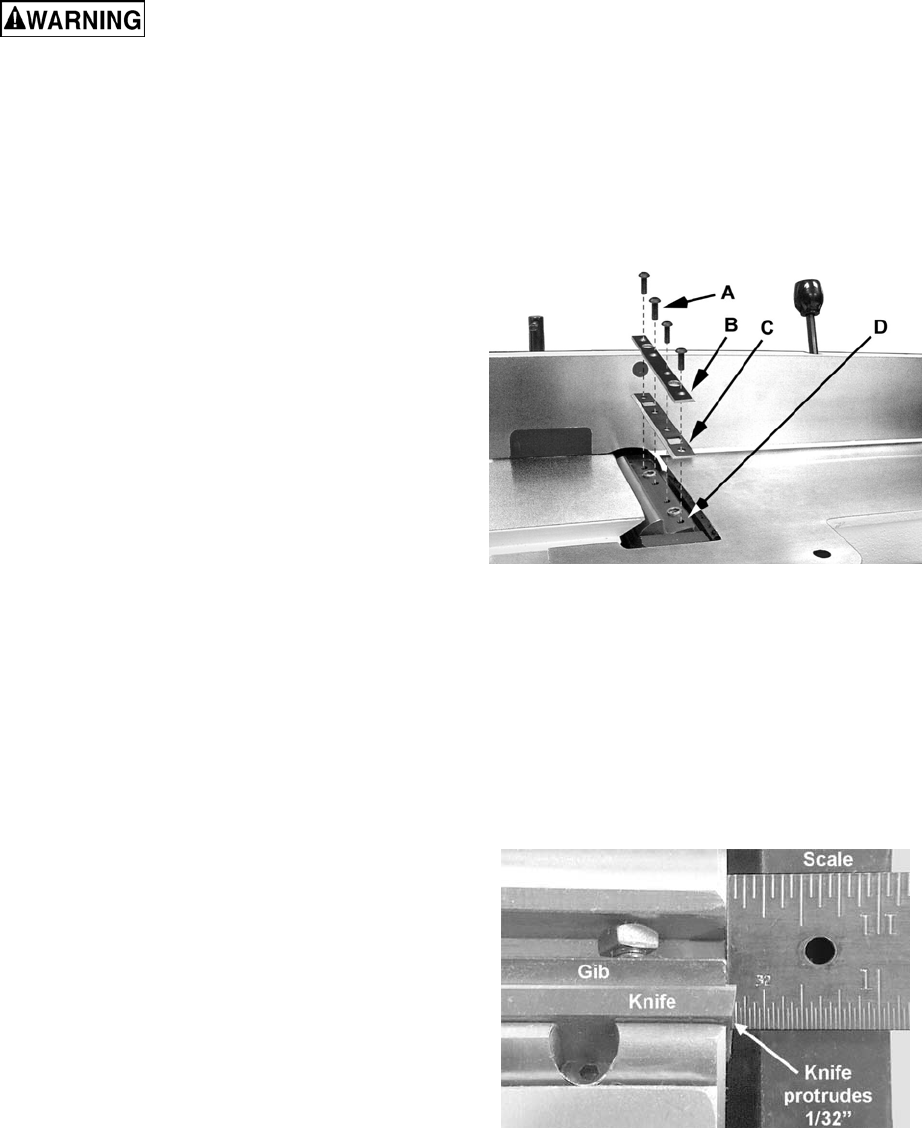
20
Replacing Knives (JJ-6CSDX)
Planer knives are dangerously
sharp. Use extreme caution when inspecting,
removing, sharpening, or replacing knives.
Failure to comply may cause serious injury.
To remove and replace a knife (Refer to
Figure 29):
1. Remove four gib screws (A) with a 4mm hex
wrench.
2. Remove the gib (B) and knife (C).
If the knife is being reused (knives are double-
edged), clean the knife, gib and cutterhead of
all pitch and debris.
3. Lay the new knife or unused edge of the old
knife back onto the cutterhead (D).
4. Replace the gib (B) and screws (A). Finger
tighten only at this time.
5. Press against the cutting edge of the knife at
the center of the blade with a piece of wood.
DO NOT USE FINGERS! This is to ensure that
the cam is making proper contact with the
knife.
6. Snug the inside two screws, then the outside
two screws.
7. Release the piece of wood pressing against
the knife and tighten the gib screws.
8. Replace the remaining two blades by repeating
steps 1 – 7.
9. Determine if knives need to be set.
Follow the Outfeed Table Adjustment section
steps 3 and 4 only to determine if knives need
to be set. Do not complete the entire
outfeed table adjustment. If knives need to
be set, proceed to the Setting Cutterhead
Knives section.
Setting Knives for Rabbeting and Nicks
To position the knives for rabbet cuts, take a shop
scale with 1/32” graduations and place it against
the end of the cutterhead. Slide the knife out until it
is at the 1/32” mark on the scale; that is, the knife
will now be 1/32” beyond the edge of the
cutterhead. The gib should remain in normal
position, even with the edge of the cutterhead.
(Figure 30). This adjustment will ensure that the
knife clears the end of the gib and cutterhead, and
has good contact with the workpiece. (See the
Rabbeting section for further information.)
Note: This will also correct for small nicks without
requiring replacement of blades.
Figure 29
Figure 30



